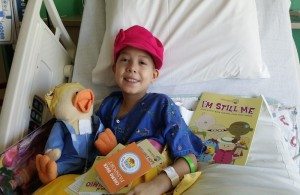This month we are continuing to discuss the different chapters from out digital Parent-to-Parent Guide. Following the Education Plan featured in last month’s e-newsletter is the Support Plan.
The first key to creating an effective support plan is to identify your unique needs. Each family has to make different adjustments so it’s important to recognize these needs. The first months are a huge adjustment period and you should not be shy about asking for help. From making emergency arrangements for siblings, to caring for pets or even watering your plants, don’t hesitate to ask and rely on others. The help you need may be in the form of something physical or be more spiritual in nature.
“We relied a lot on friends and family preparing meals for us. We especially needed them whenever we would come home from a hospitalization. Usually it would be right around supper time when we’d get home and the last thing I wanted to do was fix something to eat,” said Tiffany.
We encourage you to create a list of ways in which people can help you. Keep in mind that you will be spending much more time at the hospital and taking care of your child’s changing needs.
After you have identified your unique needs the next step is to identify your support group. Some families are lucky enough to be able to rely on family who live nearby. When family doesn’t live geographically close, the devastating event such as a diagnosis of cancer can be a little more complicated. If friends and neighbors are aware of your circumstances they are usually waiting to help you in any way they can. By allowing your friends to help, you are not only developing a closer friendship, but also creating a support group. Our families always re-iterate that if possible, you should find a way to get around feeling guilty and rely on friends for help.
“One thing I learned was that your friends, family and people you have never met before will be coming through the walls to do things for you, so get over how it makes you feel and just ask,” said Kim.

